Presenting the voices of the youth
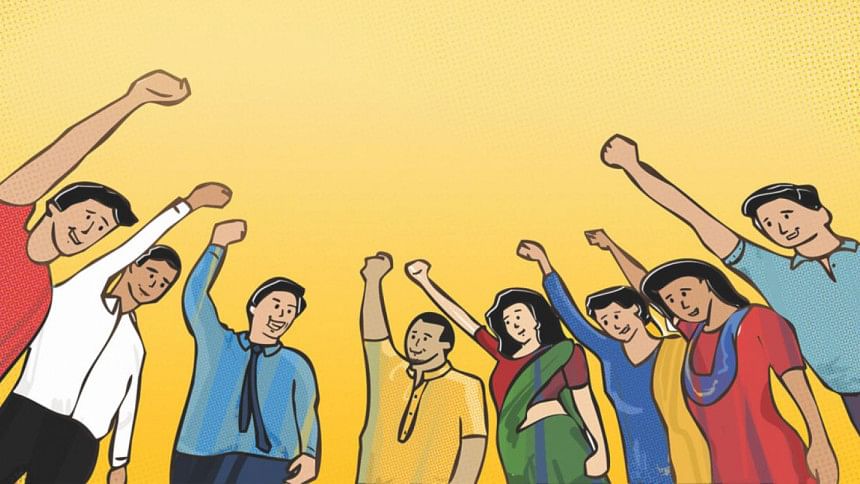
It is that special time of the year. As winter mists descend over the glitter and chime of festivities, there is also the nostalgia of yet another year having gone by. “It has been an eventful year,” we claim each time, and yet the end of 2016 feels especially different from the others. The past 12 months have been eventful, but not always in ways we wanted. As Bangladesh continued to weave itself ever more intricately into the goings-on across the world, we felt the burns of terrorism, violence, and racial discrimination plaguing the global community. Homebred evils of child abuse, sexual assault, and intolerance of diversity were thrown into harsh limelight, reminding us of how much more we still have to overcome. And yet, it was a year of victories in sports and advances in economic development and international affiliations.
As both the highs and lows of the past year have shown, be it the horror of the Holey Artisan Bakery carnage or the discovery of the talented 19-year-old Mehedi Hasan Miraz, much of what happens to a nation is driven by its youth. In that spirit, The Daily Star asks young Bangladeshi adults from different social and educational backgrounds about the best and worst of the past year, what they hope the new year will bring and how they think the youth of this country can be more meaningfully engaged in building a nation that can fulfil their dreams.
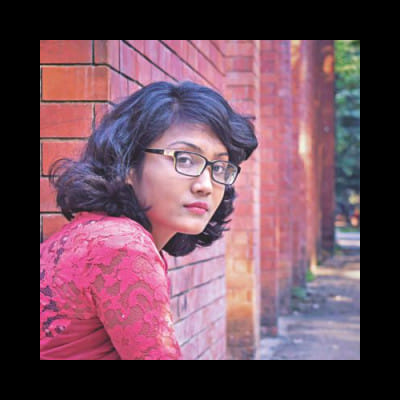
KEEP OUR HERITAGE ALIVE
“The upsurge of religious fundamentalism, communal intolerance and violence against women are the most pressing issues in our country. In order to combat them, the youth should be informed of our glorious heritage and culture. High-school level religious books still have distorted interpretations of Jihad, while Bangla books fail to portray core patriotic values. Our education systems must be reformed immediately.
We also need to decentralise. The distance between the capital and its adjacent districts should be brought under two hours' journey by developing a strong train network, so that office-goers can commute to work and their children can receive education and treatment from respective districts, thereby relieving the strain on Dhaka. Government hospitals at all administrative levels must be equipped with sufficient doctors and medical facilities. Above all, I would like to see our artistic and cultural activities flourish and be celebrated even further.
Bangladeshi youth may have an aversion to politics, but we also have an affinity towards development. If political parties can uphold pro-people and pro-youth election manifestos, bring about positive changes in political culture, implement youth empowerment policies and motivate us to initiate entrepreneurships through loans with low interest rates, there will be much more enthusiastic participation of the younger generation.”
Tanjila Sumaia Siddiqye
Freelance Artist & Student, Faculty of Fine Art
University of Dhaka
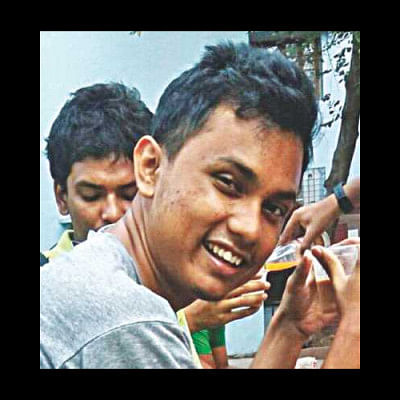
PROVE US WRONG, BANGLADESH
“I'd say President Xi Jinping's visit was the highlight of the year. The fact that China, at a time of economic crisis, thought of Bangladesh as a major ally proves how economically strong we are.
At the same time, I am horrified by the Holey Artisan Bakery incident and the complete failure of the law enforcement to bring justice to victims like Tonu, the latter highlighting how the country turns a blind eye to crimes perpetuated by a stronger force among us. Journalists are being attacked, women are being raped, and citizens are being assassinated.
We don't want much. Give us a level playing field and the youth will take the economy to greater heights. But if you give us a country where we have to bribe higher ups before kick-starting a business, where we have minimal safety, where there is no funding for research, then the youth will always be more interested to take their trades and potential elsewhere.
All I want from 2017 is stability. I want a change of culture where no crime gets swept under the rug because of outside influence.
What do I expect to occur for change? Not much. But maybe Bangladesh will surprise me. There is nothing I would like more than to be proved wrong.”
Nuren Iftekhar
2nd Year, Applied Chemistry and Chemical Engineering
University of Dhaka
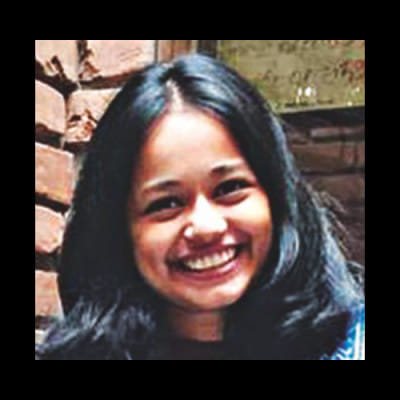
UNSTOPPER THE SILENCE
“I see victories in little developments, in the way that we are creating our own initiatives for a better world, that is steadily and one hopes, sustainably growing.
We view politics and governance as a defunct system that is someone else's mess to clean. It is a dangerous mindset to have; it takes away the power to change. Bangladesh needs to create the access, opportunity and inspiration for us to engage in the economic and political landscape.
We must think about how we collectively treat differences in our societies and the underlying intolerance we nurture. There needs to be a place for discourse, and people willing to have that discourse.
On issues of child rape and the Child Marriage Restraint Act – I am exhausted. As a woman, it is depressing to watch how our bodies and our lives are treated by the society and the rule of law. It makes all the work I have to do every day to validate myself as a woman in this society feel useless.
I don't expect changes immediately, but I would like for us to begin to question and debate. This is a space we are rapidly losing, in the absence of which our silence will only contribute to our problems.”
Ishrat Jahan
4th Year, Economics and Anthropology
BRAC University
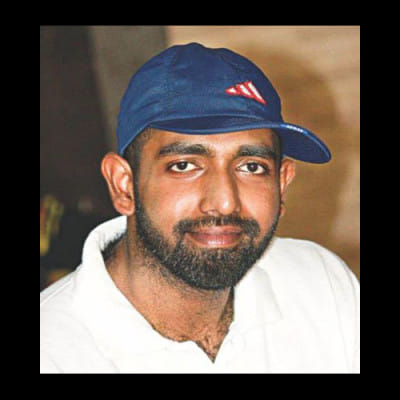
TEACH THE RIGHT KIND OF RELIGION
“I am deeply concerned with the restraint on expression of alternate views in our country. In fact, terrorism and violence often result from the lack of democratic space.
The involvement of young adults from liberal and affluent backgrounds in recent events highlights the vital role of education in any society. Young minds who want to learn about religion are often misguided. The government and society must therefore help madrasas to provide correct religious education and prevent such extremist ideologies.
Meanwhile, our leaders should set examples of harmony for the youth to follow, as our founding fathers did. They can do so by practicing tolerance and allowing the opposition, be it political or ideological, to engage in the country's growth, through a fair election, discourse platforms and partnerships in development projects. Initiatives like Islamic Bank Bangladesh's move to help two million entrepreneurs must be decentralised towards rural areas to reduce pressure on overpopulated urban hubs.
Finally, simply ensuring high enrolment will have no benefit – we need quality education in primary schools and madrasas, and university education that is practical to our vision as a nation. Recently, the Malaysian Air Asia Group's CEO decided to finance a student attending Oxford University. If our corporate leaders undertake the responsibility of educating underprivileged students with potential, Bangladesh can reach much greater heights.”
Mahfuz Rahman
Former student of Alia and Cowmi Madrasa, BA Honours in English North South University

PROMOTE CRITICAL THINKING
“Most people aren't aware of the 'bigger picture' of politics, and growing up, it always bored me. However, studying liberal arts, especially History, has informed me of how everything is interconnected. I wish my school had stressed more on the importance of such subjects. However, the MUN, debate clubs, and other such programmes are doing a good job in getting the youth more engaged.
A great many problems relating to women's rights, terrorism, and overpopulation are directly linked to misinformation. Bangladesh has been trying to mimic some fast-growing countries by heavily focusing around STEM education. While this is great for economic development, the critical thinking skills achieved from Political Science, History, Philosophy, Economics, English, etc., are being neglected. Intellect, not spoon-fed knowledge and mindless labour, needs to be encouraged.
We must remember the unfortunate events of 2016 as a learning step to hold onto virtues of kindness and positivity. It's encouraging to see the advocacy and protests over the Rampal project, and I hope they keep their voices loud.”
Bashara Hussain
2nd Year, Computer Science and History
University of British Columbia, Canada

POLISH THE INFRA-STRUCTURE
“We have platforms where the youth can raise awareness about issues, but many of us lack leadership qualities and the ability to do something to bring about change. Working for social causes will give the youth perspective on what is important.
I am especially proud of Bangladesh having reached Lower Middle Income Country status, and the way it has boosted business confidence nationally and internationally. I hope this brings in more foreign direct investment.
However, despite remarkable growth, business and investment are hindered due to bureaucratic mechanisms and the costs associated with corruption. Then there is the lack of freedom of expression and such.
In 2017, I wish to see better city and municipality services available across our major cities. It may seem like a small aspiration, but better transport and housing can uplift the living conditions of millions of people in Bangladesh. I would like to see better roads and efficient maintenance, giving our citizens better travel experiences. I believe this is a tangible goal for the government to achieve.”
Tahreen Zahra
Recent Graduate, Economics
North South University

RESPECT ALL COMMUNITIES
“Being an indigenous person myself, I am more affected by the poor condition of the indigenous civilians of the Chittagong Hill Tracts. While I think of the Padma Bridge as a positive highlight of the year, the attacks on Santals in Gopalganj horrify me.
I am most worried about the sufferance of the Rohingyas right now. We must respect and stand up for every human being's equal rights. No one has any right to harm or kill another human being simply because of racial or religious differences.
I hope to see a liberal Bangladesh, free of terrorism and corruption. Above all, I would like to see the prevalent racial and religious clashes removed.”
Antar Chakma
4th Semester, Pali and Buddhist Studies
University of Dhaka
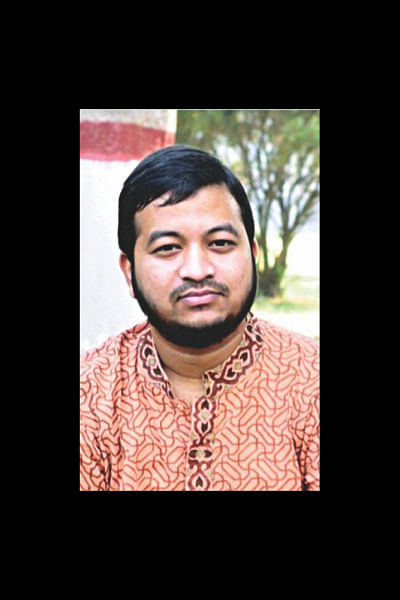
BRING AN END TO VIOLENCE
“I was happy to see the considerable rural development in Bangladesh in 2016.
Harbouring deep concerns over the recent incidents of terrorism and the persecution of the Rohingyas, I would like 2017 to bring us a Bangladesh free from militant threats, with equal opportunities for the people in politics, and for border killings to be stopped completely. Moreover, I hope to see better Bangladesh-India relations, less frequent road accidents and most importantly a fair and free election.”
Usama Ahmad
Graduate Student
Dept. of Al-Hadith and
Islamic Studies
Islamic University,
Kushtia
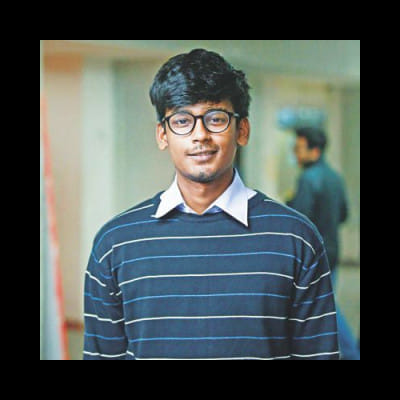
CHANGE YOURSELF TO CHANGE YOUR COUNTRY
“The highest point of the year for me was the signing of Bangladesh's treatise with India, a powerful nation that largely influences our country.
An important issue at this moment is Bangladesh's infrastructure – roads, transport, education, waste management, etc. There have been huge advancements since the latest mayoral election, but we need them to continue.
It is most crucial, I believe, for us to change our mindsets. The government needs to focus more on awareness campaigns to improve the mentality of different classes of people in Bangladesh.
A steady and fixed government has always been detrimental to a developing country. Singapore, Malaysia and Thailand are great examples. I expect the main cities other than Dhaka to advance in 2017 in terms of job opportunities for the lower income demographic, which would relieve the capital of population density. 2016 was a productive year and 2017 can only be better. Since there is no political turmoil at this moment it should be easier now.”
Ornab Olindo
4th Year, Computer Science and Engineering North South University
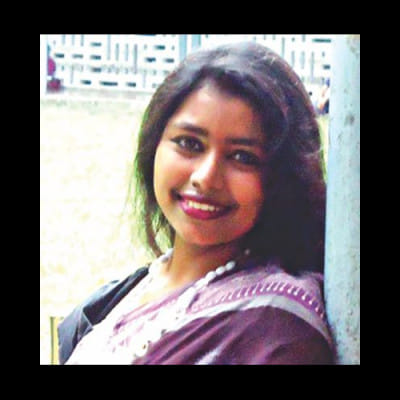
LEARN TO COMMUNICATE AND EMPATHISE
“I believe in clarity. Better communication between the youth and policymakers or experts could clear up agendas and issues among the youth. Seminars could be arranged countrywide to disseminate knowledge and to gather views on a particular policy. Media can participate by acting as the third eye that keeps things in check.
I am excited about the way we have been navigating through the deep seas of foreign relations, especially with China. However, threat of militancy and persistence of violence against women and ethnic minorities cast these achievements into shadows. Then there are development projects that overlook environmental and demographic costs. Among these, I believe that the Rohingya refugee crisis requires immediate attention because of its national and international impacts.
We, the younger generation, tend to put great weight on education, but neglect morality and end up becoming the people we hate. We talk about issues but take no course of action. This has to change. In 2017, I want to see an enhancement of equity, and watch Bangladesh emerge as a nation that is cooperative, empathetic and respectful towards all.”
Mansura Amdad
2nd Year, Department of International Relations
University of Dhaka
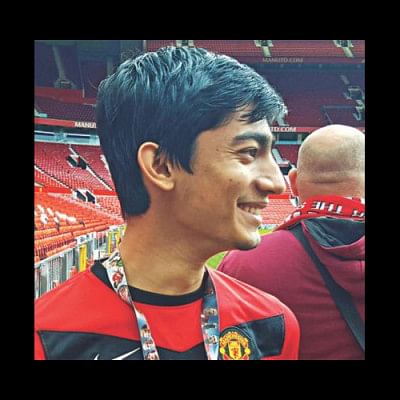
WORK FOR A SAFER BANGLADESH
“Despite all our problems, we have one of the most rapidly growing economies in the world. There is so much more we can achieve if we get engaged.
2016 has not been a good year to say the least, but the economy continued to grow strongly, with the energy and IT sectors making very impressive strides. Cheap solar panels have helped alleviate poverty in many rural areas of Bangladesh by providing clean, renewable energy. Our beloved cricket team has continued to bring joy to millions of people.
I think the most pressing issue in Bangladesh right now is the protection of minority groups. This not only includes threats from extremist groups but also Hindus whose communities have been the subject of vandalism and arson, and the Rohingya who desperately need refuge in our country. We must collectively speak out about these issues and make the government take action.
For 2017, I want more stability and security. I do not want us to become a police state but I appreciate efforts to crack down on extremist groups. I hope the government invests more on education, and that we get an election with a strong opposition.”
Syed Ayman Kabir
3rd Year, Economics
Wesleyan University, USA
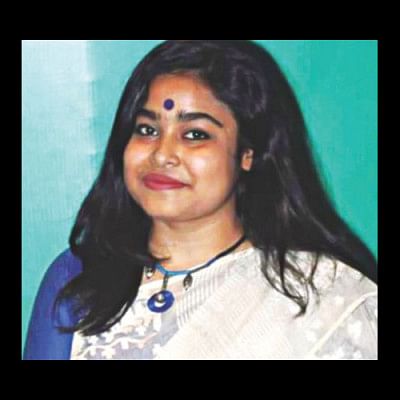
GUIDE THE YOUTH CORRECTLY
“While it is difficult to engage youth directly at the policy-making level, we can always play the role of watchdogs. For that, we need to be well-informed about the crises of our times.
I think the Bangladesh-China relations are the highlight of the year, as well as being a significant boost in South Asian geopolitics. Meanwhile, the Gulshan attack revealed our vulnerability in dealing with terrorist threats. The attacks on religious and ethnic minorities are shameful for us as a nation and I believe that they deserved more media attention.
Among the issues of the Rampal project, violence against women and children, and the Rohingya crisis, the youth's involvement in extremism demands most urgent attention. The government must have clearer and more immediate policies to tackle this threat.
Our policymakers over-use the term 'role model for the world' while describing the developments of Bangladesh. I want to see the actual manifestation of the term not only in economics, but in all spheres of society and politics.”
Jannatul Mawa
2nd Year, Department of International Relations
University of Dhaka
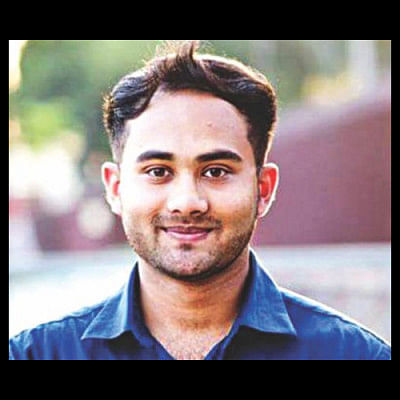
DECENTRALISE, IMMEDIATELY
“The best thing to happen to Bangladesh in 2016 was definitely the Test match win over England.
I am extremely concerned about the threat of a major earthquake in Dhaka city. Although realistically it will take a lot of time, I cannot stress enough on this – our government must realise how important it is to decentralise as soon as possible. Otherwise, we may be in grave danger in the near future. Government offices, business entities, etc. need to be dispersed throughout the country. Cities like Chittagong and Khulna can serve well in such moves.
Despite setbacks, Bangladesh always finds a way to make significant strides in terms of economic development. We have a population of around 165 million. With proper utilisation of our manpower, we can definitely go a long way. I hope Bangladesh follows the path of Mahathir Mohammed's Malaysia and soon becomes an ideal country for other nations. 2017 can very well be the year that initiates it all.”
Isnaad Sharahbeel
Student of Finance
IBA, University of Dhaka
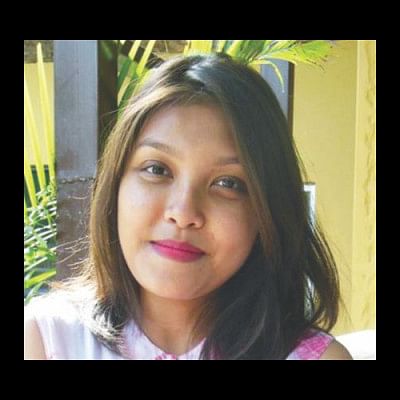
EMBRACE DIVERSITY
“Many of us tend to participate verbally rather than practically when it comes to matters of the country. But voicing an issue does not solve the problem itself. I think being engaged in community-based organisations will give our voices a platform and help us to actually know about the reality of crises facing our country. Introducing seminars and road shows at different universities would also raise awareness and increase the involvement of youth in current affairs.
I am proud of how Bangladesh has been developing and rebuilding itself, and was especially pleased with the enlistment of 'Mongol Shobhajatra' in the UNESCO cultural heritage list. However, I am concerned about how much matters of extremism and violence against minorities are being overlooked – they deserve even more attention.
As a youth from an ethnic background, I would say that having a clear conscience of right or wrong is more important about such sensitive topics than being biased and taking sides. I sincerely hope that Bangladesh will learn to embrace people from all religious backgrounds and ethnic groups.”
MOULY DEWAN
1st Year, Computer Science and Engineering
Khulna University of Engineering & Technology
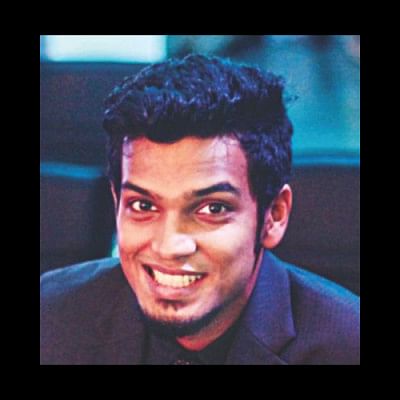
END THE POLITICAL BLAME GAME
“The visit by President Xi Jinping brought the spotlight of the world upon the country and more importantly it came with promises of funding for various infrastructure and development projects. This shows that Bangladesh's geopolitical importance is finally being realised by the major powers. The deals being done, however, have to be judged on the terms and conditions of the repayment.
Two issues in Bangladesh need to be addressed urgently. Firstly, extremists need to be punished and youth awareness should be raised to ensure that future generations do not make the same mistakes. The second pressing issue is the lack of a proper political environment. Opposing parties not agreeing to issues is understandable and acceptable, but not even having the political climate for parties to “agree to disagree” is bad for the entire country. The major parties should attempt to rectify this through discussions and negotiations so that the country can move forward.
I would like to see political parties and the civilian society move away from the political blame game, identify root causes of the most pressing issues facing the country, and work together to reverse them. Such an improved environment will be conducive for the economy to build upon the 6-7 percent GDP growth rate we have been experiencing and thus improve the standard of living.”
Sameen Ahsan
Economics and Finance, North South University

UNDERSTAND THE MIND, CULTIVATE CREATIVITY
“In 2016, I was especially pleased when Rajshahi started combating air pollution, and when Bangladesh ranked high in South Asian gender equality.
I believe there should be an emphasis on current issues in schools from a young age. We also need more charismatic leaders who wish to teach and lead, such as Dr. Yunus, whose wisdom and effective communication can encourage us to become involved in a more positive way. We may think of politics as a negative force, but it shouldn't discourage us from seeking knowledge and understanding the system. No system is static; hence we have the power to change it. If the country can remind us of it, we would be motivated to participate effectively.
I believe Bangladesh needs an ardent focus and acceptance of mental health issues. It is a taboo concept; when brought up, the patient is often directed towards religious reliefs. There needs to be different outlets and more practical acknowledgement of these realities.
We also need playgrounds where children and teenagers are not limited to basketball, football, or cricket. Society in general needs to stop glorifying the tuition culture that deprives students of their childhood. Human beings are creative minds; we aren't machines that need to have a constant measured output. Each and every person has a potential to do good, but that fire needs to be ignited at first and the rest will unfold.”
ADIBA HASAN
3rd Year, Religion & Political Science
Augustana College, USA
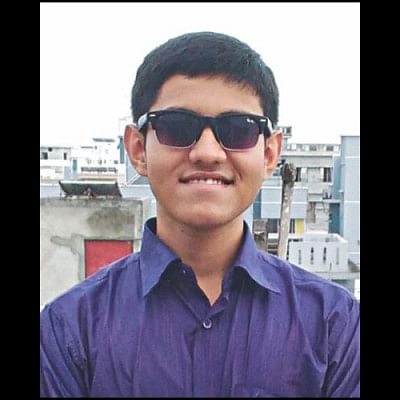
OUR COUNTRY, OUR RESPONSIBILITY
“We are stuck in a loop. Young people aren't interested in politics because it doesn't have a healthy environment, and the parochial system of politics is the result of the lack of youth involvement. We need to fix both ends. The young generation should try to get involved and fix things themselves; meanwhile, our leaders should make the political environment more welcoming towards younger participants.
The same applies to the business world. There's a negative view towards businessmen widely regarded as dishonest. This culture needs to change. We have had slow growth in investments despite a stable political environment and absence of economic depression. The central bank can't change this situation even with decreasing interest rates. Young people should be encouraged, trained and even given loans to start their own businesses instead of remaining unemployed while looking for jobs under others.
On another note, I came out of the July terrorist attack with mixed feelings towards the media. While some showcased examples of quality journalism by reporting accurate news, others spread fear, confusion, and hatred through unchecked news, dividing the nation when it was in dire need to be united.
Corruption, I believe, is what needs immediate attention. It is decreasing our administrative efficiency, slowing down development, and increasing the income inequality. Mere laws are no longer enough – quick trials and the establishment of severe punishments are necessary.
Despite all odds, Bangladesh has proven that she is able to achieve great things such as lower maternal mortality rate, improved sanitation conditions, and eradication of preventable diseases through vaccination. We need to stop blaming the government or anyone else, realise that the problems of this country are our own, and transform into a model of development and an example of what humanity can achieve through united effort.”
A.K.M. Asif Uzzaman
BSS 2nd Year, Political Science
University of Dhaka

 For all latest news, follow The Daily Star's Google News channel.
For all latest news, follow The Daily Star's Google News channel. 



Comments